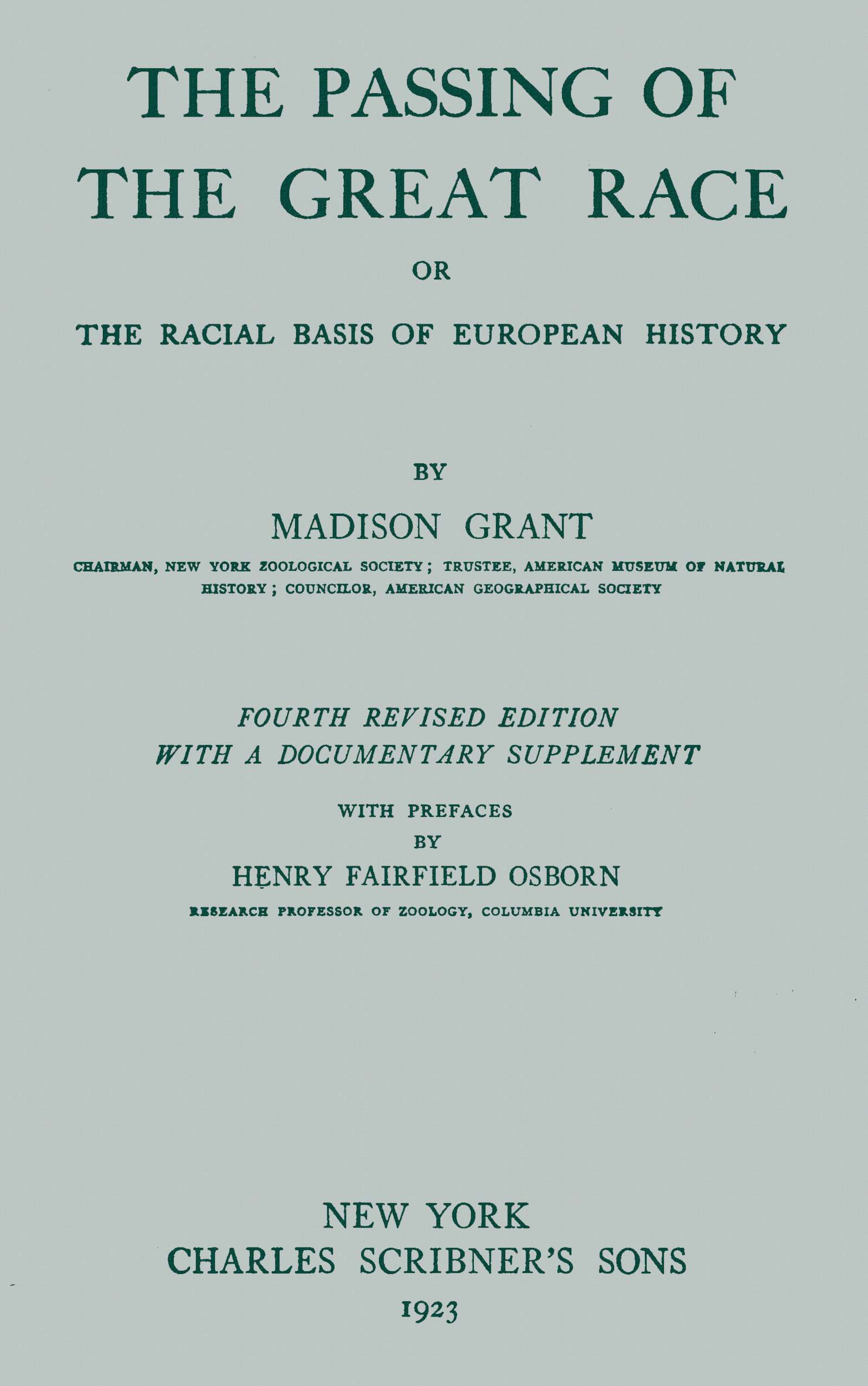The passing of the great race; or, The racial basis of European history
Play Sample
PREFACE
European history has been written in terms of nationality and of language, but never before in terms of race; yet race has played a far larger part than either language or nationality in moulding the destinies of men; race implies heredity and heredity implies all the moral, social and intellectual characteristics and traits which are the springs of politics and government.
Quite independently and unconsciously the author, never before a historian, has turned this historical sketch into the current of a great biological movement, which may be traced back to the teachings of Galton and Weismann, beginning in the last third of the nineteenth century.This movement has compelled us to recognize the superior force and stability of heredity, as being more enduring and potent than environment.This movement is also a reaction from the teachings of Hippolyte Taine among historians and of Herbert Spencer among biologists, because it proves that environment and in the case of man, education, have an immediate, apparent and temporary influence, while heredity has a deep, subtle and permanent influence on the actions of men.
Thus the racial history of Europe, which forms the author’s main outline and subject and which is wholly original in treatment, might be paraphrased as the heredity history of Europe.It is history as influenced by the hereditary impulses, predispositions and tendencies which, as highly distinctive racial traits, date back many thousands of years and were originally formed when man was still in the tribal state, long before the advent of civilization.
In the author’s opening chapters these traits and tendencies are commented upon as they are observed to-day under the varying influences of migration and changes of social and physical environment.In the chapters relating to the racial history of Europe we enter a new and fascinating field of study, which I trust the author himself may some day expand into a longer story.There is no gainsaying that this is the correct scientific method of approaching the problem of the past.
The moral tendency of the heredity interpretation of history is for our day and generation and is in strong accord with the true spirit of the modern eugenics movement in relation to patriotism, namely, the conservation and multiplication for our country of the best spiritual, moral, intellectual and physical forces of heredity; thus only will the integrity of our institutions be maintained in the future. These divine forces are more or less sporadically distributed in all races, some of them are found in what we call the lowest races, some are scattered widely throughout humanity, but they are certainly more widely and uniformly distributed in some races than in others.
Thus conservation of that race which has given us the true spirit of Americanism is not a matter either of racial pride or of racial prejudice; it is a matter of love of country, of a true sentiment which is based upon knowledge and the lessons of history rather than upon the sentimentalism which is fostered by ignorance.If I were asked: What is the greatest danger which threatens the American republic to-day?I would certainly reply: The gradual dying out among our people of those hereditary traits through which the principles of our religious, political and social foundations were laid down and their insidious replacement by traits of less noble character.
July 13, 1916.
